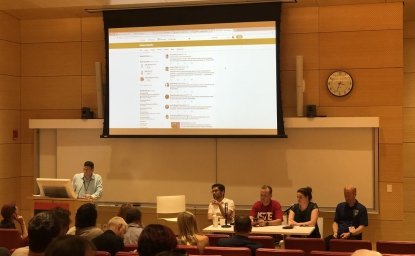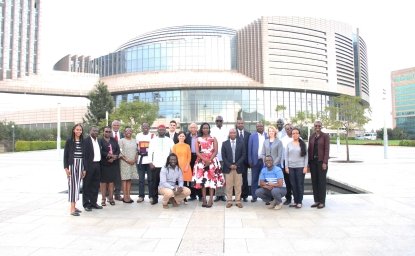
A blog of the Wilson Center
This past June, 16 students gathered in the hills of northern Italy for a ten-day deep immersion on perhaps the most monumental scientific innovation of the last 100 years: nuclear technology. Now in its 8th year, the Nuclear History Boot Camp is an initiative of the Nuclear Proliferation International History Project (NPIHP) in conjunction with the University of Roma Tre and the Machiavelli Center for Cold War Studies, and is funded by the Carnegie Corporation of New York. Based in Allumiere on a retired NATO military base, the boot camp brings together scholars and students from around the world in an effort to improve understanding and to inform policymaking. The boot camp focuses on “training the next generation of historically-informed nuclear experts,” says Christian Ostermann, Director of the History and Public Policy program at the Wilson Center, and co-director of the boot camp. World renowned experts, including David Holloway of Stanford University, Martin Sherwin of George Mason, and Joe Pilat of Los Alamos National Laboratory are brought in to lecture on a variety of topics. “Some of the [students] in the early years now come back as faculty members,” Ostermann notes. In an op-ed for The Hill, Allen Pietrobon, a student at this year’s camp, says that subjects discussed “range from the evolution of nuclear technology to the origins and development of deterrence theory through the historical roots of today’s global nuclear landscape.”
The boot camp’s location in rural Italy plays a crucial role in creating a sense of unity. Every night, participants and lecturers descend into Allumiere and have dinner together at one of the town’s two restaurants. This “fosters a sense of community among the boot camp participants and the faculty,” Ostermann explains.
An international group, the boot camp convenes PhD candidates and recent PhD graduates who have studied or study at a diverse range of schools, including Paris Nanterre University, the University of Toronto, Stockholm University, and the University of Delhi. The international nature of the students and faculty can make for some interesting global discussions. Ostermann considers the annual camp to be a success, remarking that “[we continue to have] a good group, very solid research, great discussions, and good comradery.”
Author


Nuclear Proliferation International History Project
The Nuclear Proliferation International History Project is a global network of individuals and institutions engaged in the study of international nuclear history through archival documents, oral history interviews, and other empirical sources. Read more




